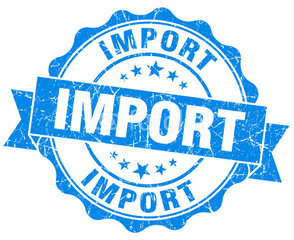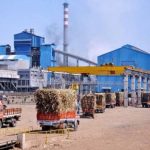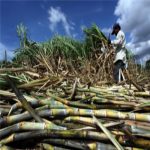China will levy extra tariffs on out-of-quota sugar imports from all origins starting from Aug. 1, the Commerce Ministry said on Monday, just over a year after introducing hefty penalties on top growers including Brazil and Thailand.
In May last year, the government hit major exporting nations with penalties on sugar shipments after years of lobbying by domestic mills. It still exempted 190 smaller producing countries and regions, mostly in Southeast Asia and South America, like in the Philippines and El Salvador.
That list of exempt countries has now been cancelled, the Commerce Ministry said in a Monday statement. “Protective measures will be uniformly applied to all out-of-quota sugar imports,” it said.
China allows 1.94 million tonnes of sugar imports a year at a tariff of 15 percent as part of its commitments to the World Trade Organization. Shipments outside of that allowance – out-of-quota imports – are charged a higher tariff and need special permits.
Pressured by a large global surplus and rising domestic production, Chinese sugar prices have plunged this year, pushing most producers into the red and threatening China’s efforts to support millions of small farmers in the poor southern region of Guangxi and neighbouring Yunnan province.
Industry officials recently called on the government to “tighten” supplies from international markets, amid rising worries that large global stocks would lead to more smuggling into China.
Still, China’s move came as a surprise to most traders, who had not expected a rapid response from the government.
“We expected them to take action but not so fast,” said a sugar trader with an international trading house based in Shanghai.
Chinese white sugar futures touched a low of 4,797 yuan ($717.63) per tonne last week, a level not seen since 2009, and they are currently hovering at a four-year low.
Production costs, though, are as much as 6,000 yuan a tonne for many mills, according to the trader with the international house.
The new tariffs will have limited benefit to the domestic market this year, said Liu Hande, president of processor and trading company Guangdong Zhongqing Sugar Group Co Ltd.
China has already bought up much of the sweetener available from countries that had been on the exempt list, he said, but added that the tariffs should support prices from next year.
Out-of-quota imports already incur a 50 percent levy, and the protective measures added an extra 45 percent duty to those imports last year, taking the total to 95 percent. This was set to fall to 90 percent this year and 85 percent next year.
Chinese importers sharply cut shipments from top supplier Brazil, after the tariffs were introduced last year. They also boosted shipments from smaller producers, some of which exported to China for the first time.
Under the new measures, China could return to buying more from Brazil, said the trader, as it still needs a certain volume of imports to meet demand each year.













